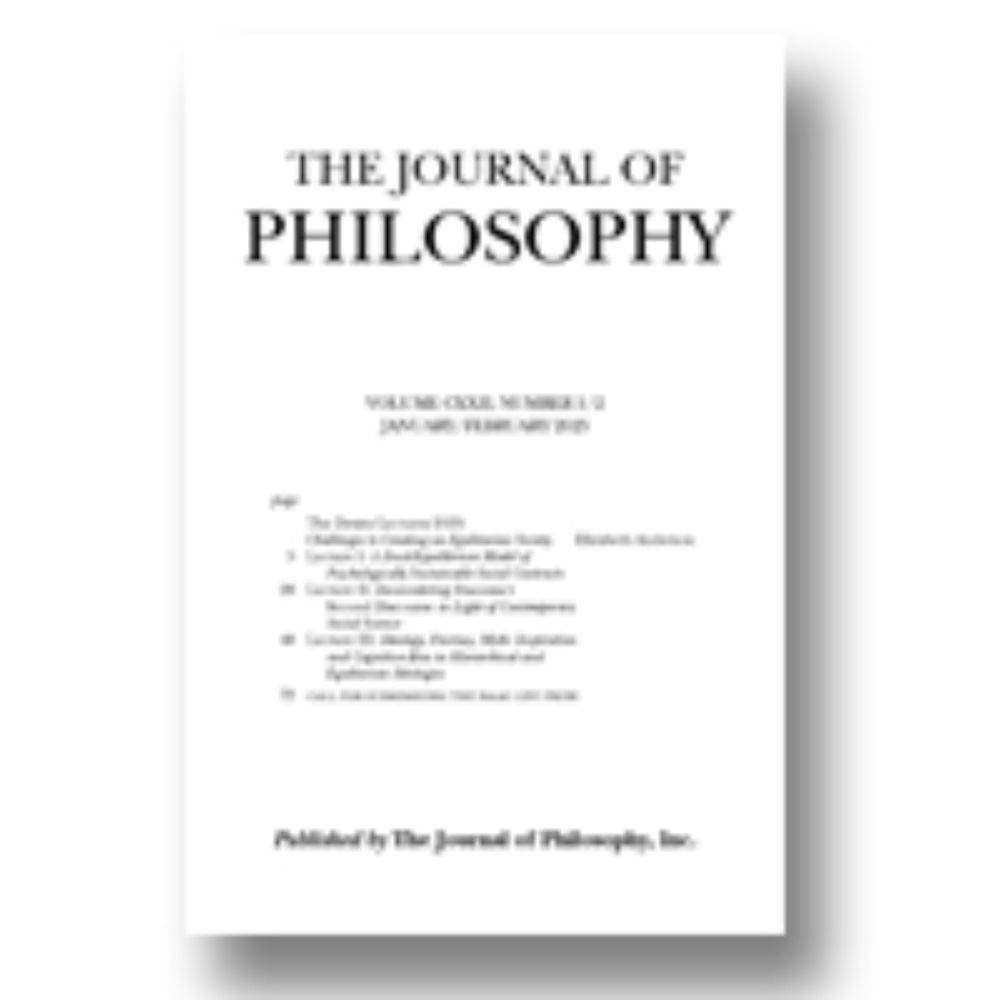ana gantman
@anagantman.bsky.social
associate prof of psychology at brooklyn college & cuny grad center, & assoc prof of phil at cuny grad center; interested in moral psych—how people judge what is right and wrong, and what they do with those judgments
But they also refract them, making it possible for people to use state procedures (with all the power and access to legitimized violence this affords) to satisfy their own ends, outside of the rule of law. We argue that this is the key to understanding the psychology of authoritarianism.
September 25, 2025 at 3:14 PM
But they also refract them, making it possible for people to use state procedures (with all the power and access to legitimized violence this affords) to satisfy their own ends, outside of the rule of law. We argue that this is the key to understanding the psychology of authoritarianism.
How? States solve large scale coordination problems, largely with state rules and third-party punishments. State rules and state punishments codify everyday human desires for norms and rules, and third-party punishment
September 25, 2025 at 3:14 PM
How? States solve large scale coordination problems, largely with state rules and third-party punishments. State rules and state punishments codify everyday human desires for norms and rules, and third-party punishment
indeed we find that the idea that aesthetic pursuits provide unique access to autonomy, rule-breaking, and authenticity, is partly how they provide us a feeling of nearness to our true selves. they provide an escape from the principles, rules, and conventions that define the moral domain

September 15, 2025 at 3:56 PM
indeed we find that the idea that aesthetic pursuits provide unique access to autonomy, rule-breaking, and authenticity, is partly how they provide us a feeling of nearness to our true selves. they provide an escape from the principles, rules, and conventions that define the moral domain
and when asked to imagine the very same person, at a crossroads in life, contributing moral or artistic value to society, we find that sometimes people judge those who take the aesthetic path to have found greater feelings of nearness to their true selves & freedom from rules and conventions

September 15, 2025 at 3:56 PM
and when asked to imagine the very same person, at a crossroads in life, contributing moral or artistic value to society, we find that sometimes people judge those who take the aesthetic path to have found greater feelings of nearness to their true selves & freedom from rules and conventions
despite much research pointing to a "moral primacy" view where pursuing moral goodness will bring people closest to feelings of nearness to the true self, and win you friends and a good reputation--people want to see a plurality of values in an ideal society and an ideal life

September 15, 2025 at 3:56 PM
despite much research pointing to a "moral primacy" view where pursuing moral goodness will bring people closest to feelings of nearness to the true self, and win you friends and a good reputation--people want to see a plurality of values in an ideal society and an ideal life
Reposted by ana gantman
In this finally out (!) paper, I argue no—and cognitive science backs this up. We can keep the orthodox rationalist view of belief *and* recognize the difficulties in changing minds. The key is thinking of belief as requiring a *capacity* (not a reliable disposition) to respond to evidence.

Resistant Beliefs, Responsive Believers - Volume 122, Issue 4, April 2025
Beliefs can be resistant to evidence. Nonetheless, the orthodox view in epistemology analyzes beliefs as evidence-responsive attitudes. I address this tension by deploying analytical tools on capaciti...
www.pdcnet.org
July 29, 2025 at 1:09 PM
In this finally out (!) paper, I argue no—and cognitive science backs this up. We can keep the orthodox rationalist view of belief *and* recognize the difficulties in changing minds. The key is thinking of belief as requiring a *capacity* (not a reliable disposition) to respond to evidence.
people would be more likely to say that the boss is more responsible than the employee, willed the actions of the employee, AND participants also say that the actions of the boss are teleological (like most human action) but the actions of the employee are mechanistic!
May 15, 2025 at 7:22 PM
people would be more likely to say that the boss is more responsible than the employee, willed the actions of the employee, AND participants also say that the actions of the boss are teleological (like most human action) but the actions of the employee are mechanistic!
so for example, when we experience our thought preceding our action like a little preview, we are more likely to feel like the experience of conscious will, or the feeling of action authorship. we thought similarly if the orders of the boss directly precede the actions of the their employee
May 15, 2025 at 7:20 PM
so for example, when we experience our thought preceding our action like a little preview, we are more likely to feel like the experience of conscious will, or the feeling of action authorship. we thought similarly if the orders of the boss directly precede the actions of the their employee

